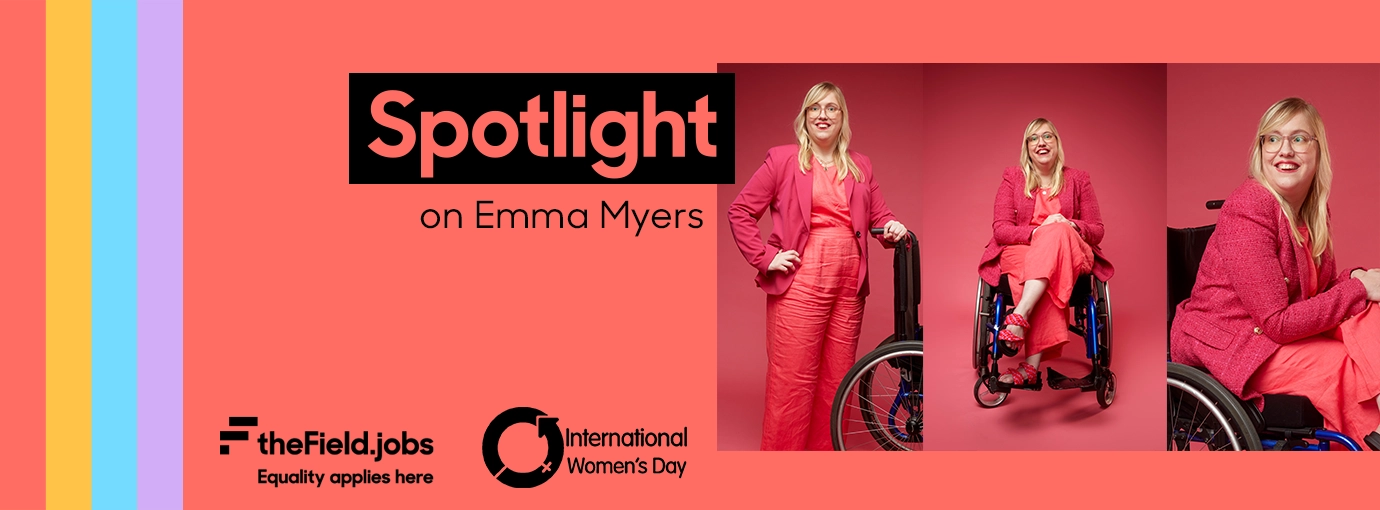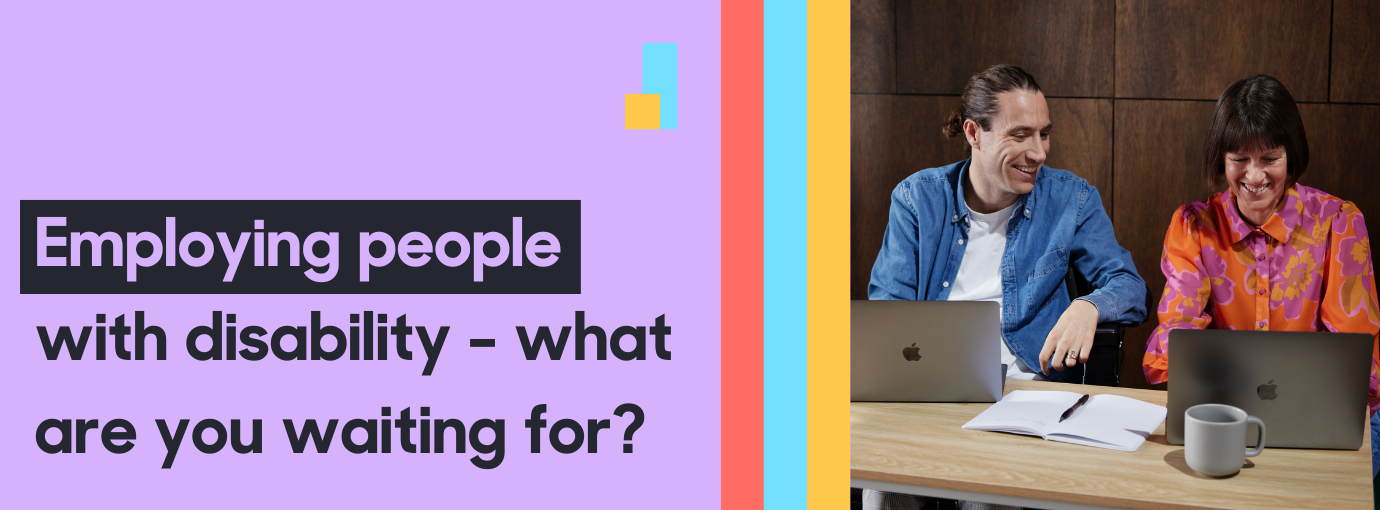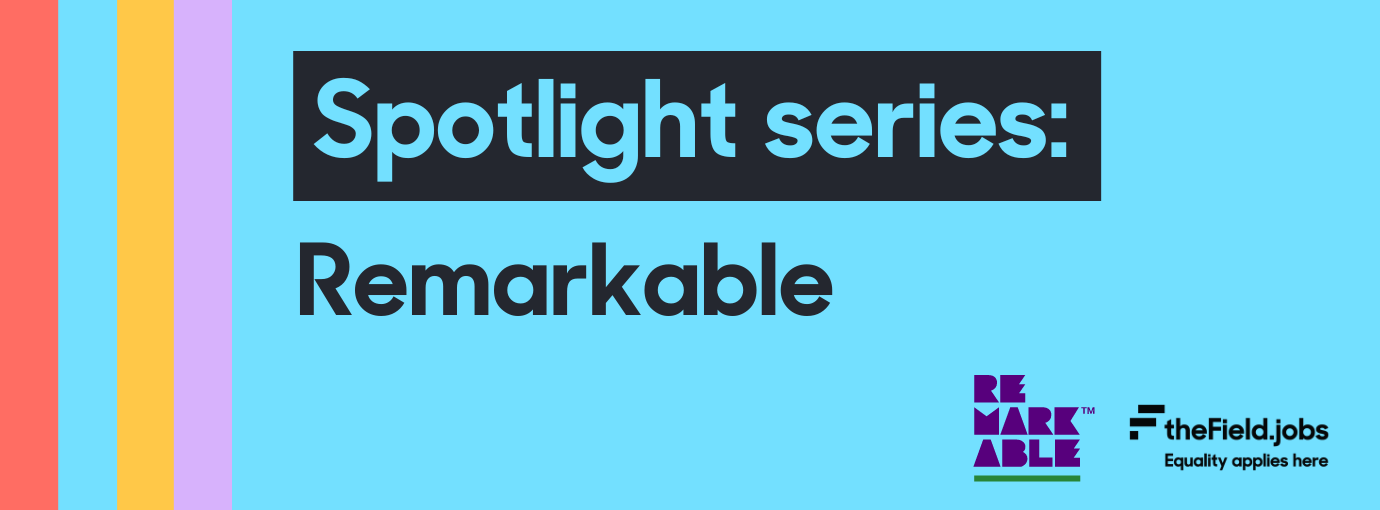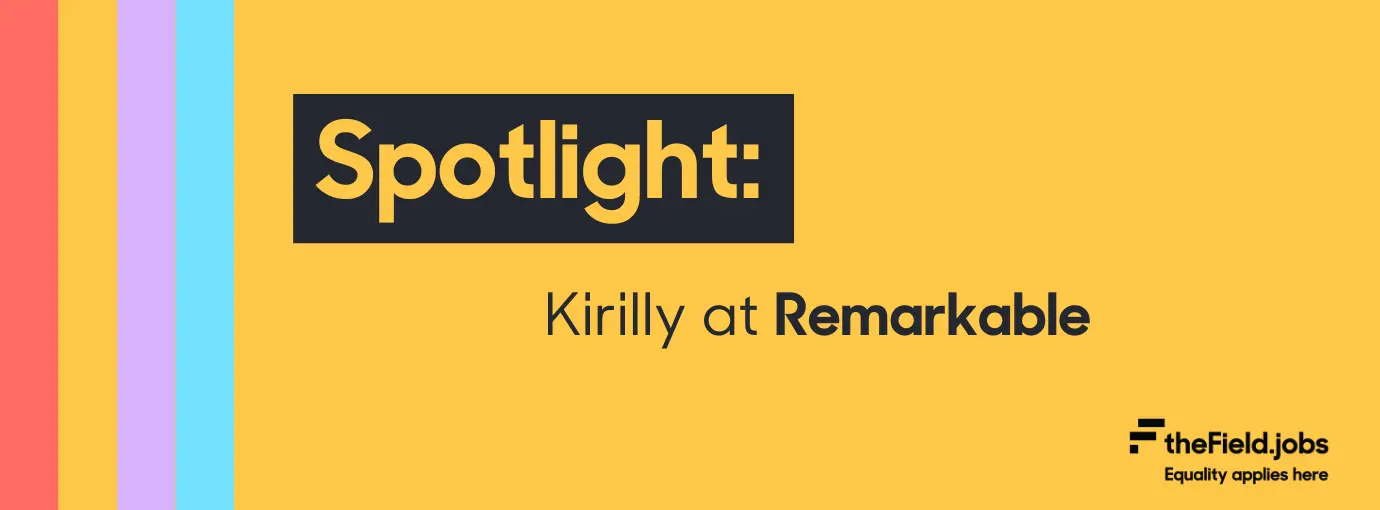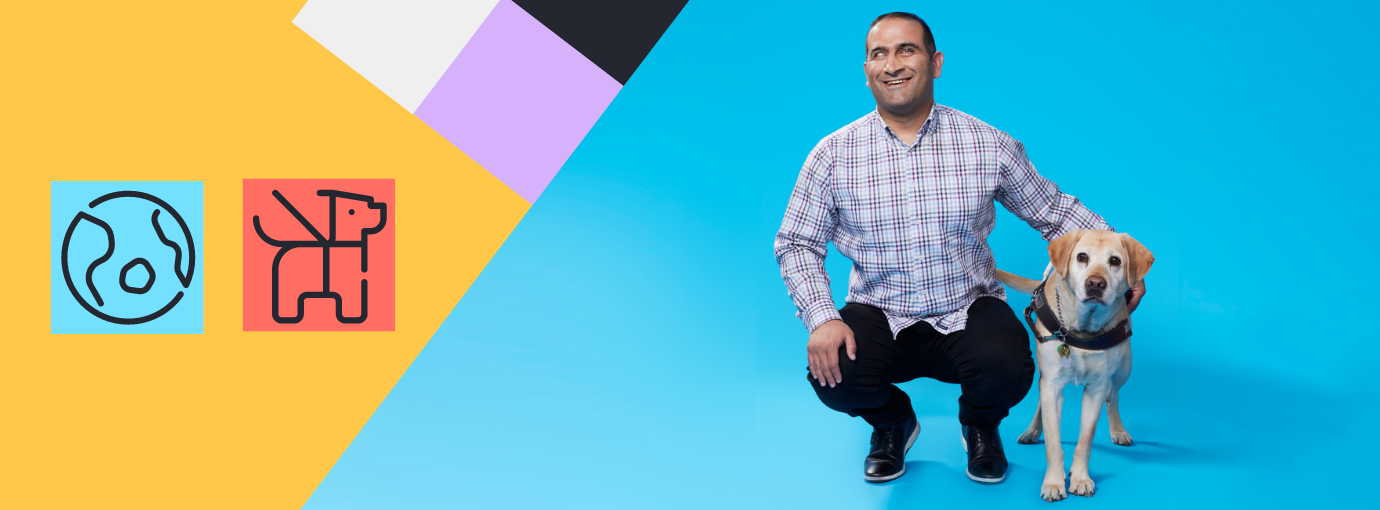In celebration of International Women’s Day, this March we chatted with Emma Myers. Emma is a screenwriter and journalist with disability, and an all ’round amazing woman.
Emma is no stranger when it comes to rewriting the story on disability representation. Her personal experience, thesis on “Women, Disability and Physical Intimacy in Contemporary Popular Culture” and most recently, her creation of the show Latecomers has helped to break down disability stereotypes, including on Australian TV. She doesn’t stop there though, as she also shares the stories of people with disability through her work as a journalist with the ABC.
Emma is a close friend of the Field’s, and we chatted with her about her research, the hurdles she’s faced as a person with disability in employment, advice she has for other job seekers and got a sneak peek into some of her upcoming projects.
the Field:
Thanks for taking the time to talk to us Emma! To start with, tell us a little bit about yourself.
Emma:
I am a screenwriter, actor and journalist with cerebral palsy based in Newcastle. I have a Bachelor of Arts and subsequent 1st Class Honours degree on the representation of women and physical disability in the media. I’m also the co-creator and writer of the critically acclaimed SBS Digital Originals’ series Latecomers, which recently gained a Series Mania nomination in France.
the Field:
We’re huge fans of Latecomers! Tell us more about your involvement in that project and what the experience was like. Also, how did your thesis on “Women, Disability and Physical Intimacy in Contemporary Popular Culture” influence the creation of the show?
Emma:
I am one of the creators and writers of Latecomers, which is a comedy-drama series I co-created with Angus Thompson and comedian Nina Oyama. It is based on the experiences of Angus and myself, and it was my first foray into writing for screen, which is something I’ve always wanted to do, so I was ecstatic to say the least. Being on set and watching the series be filmed in my hometown of Newcastle by a group of amazing humans who’ve worked on some of the biggest projects in the Australian screen industry was a real “pinch me” moment.
In my thesis, I explored how the media influences negative assumptions about disability, and used the creation of the tv series to counter these elements. There are a lot of stereotypes informed by largely inaccurate portrayals of women with disability in the media. This moulds the public’s view of women with disability and their supposed inability to conform to established gender expectations. These stereotypes have also played a role in my own life as a woman living with cerebral palsy, which has been influenced and dictated by social perceptions. The show [Latecomers] explores how harmful stereotypes depicted on screen come into play in everyday situations and works to disprove these misconceptions.
the Field:
For those who don’t know, you’re also a writer for the ABC and received the 2020 Regional Storyteller Scholarship. How does working as a journalist help you to elevate the voices of people with disability?
Emma:
My role as a journalist with personal insight gives me the opportunity to write about issues within the disability community with authenticity, empathy and compassion. I’m passionate about changing attitudes towards people with disabilities, and I believe that my TV writing and reporting has afforded me the opportunity to show what we can achieve. That we are capable of achieving success, have a right to be seen and heard the same as any other individual, and are not alone in wanting to achieve. I hope I am seen as someone positive and capable of influencing change.
the Field:
We’ve talked a little about your career, and you have faced a fair few barriers to employment. What are some employment challenges that you’ve had to overcome?
Emma:
My first attempt at employment was with a disability employment agency who made assumptions that all disabilities were identical. When I tried to explain my capabilities, I was talked down to and told there was a job in a sheltered workshop folding laundry. Now being a person with cerebral palsy with fine motor skill problems, you can understand my shock, disbelief and anger at their suggestions. Despite my mother advocating on my behalf, the employment agency still made incorrect assumptions about my disability. I did find casual subsidised employment at a motel for 12 hours a week, though I was way too efficient and would complete my admin duties within the first forty five minutes of the shift. They didn’t expect me to stay at the job, but I did for three years.
In another example, I attempted to attend an interview at another motel, which was just a formality as they said they had every intention of hiring me. But I got there to find that I couldn’t actually access the building. I didn’t even get out of the taxi as the driver went in and asked the manager to come out and talk to me about the lack of wheelchair access. This actually ended up being my first report as a journalist for the ABC, after my internship had ended, and I was offered a six-month casual journalist contract.
the Field:
Have you had some really positive work experiences that stand out? What made them different?
Emma:
Working at the ABC has been so welcoming and freeing. I’m treated equally, am included in workplace conversations, and my input is respected and valued. Colleagues and supervisors also actively seek out my opinions about what would make the workplace more accessible for people with disabilities.
There was also a time I was filling in an application to volunteer for the 2018 Invictus Games, which were being held in Sydney. For those who don’t know, the Invictus Games is an international sporting competition for injured service people. I ticked the box to volunteer to check wristbands, which I’d done before, but this time I thought I’d try my luck by putting down media liaison as well. To my surprise, the organisers were impressed with my prior experience in community radio and a bi-monthly column in the local paper, and I got the media liaison role. There were so many people with disability around, I found for the first time in my life that I was not the minority, but one of the majority. That felt so comfortable.
the Field:
You’ve been involved with the Field for a while now, as part of our upcoming marketing campaign and our launch at Parliament House. What made you keen to be a part of the Field from the start?
Emma:
I found out about the Field when I was asked to do an advertisement for the organisation, and at that time I didn’t know it existed. Once I was told about the initiative and what it was trying to achieve, I was so thrilled that someone was finally going to bridge that gap within the employment sector.
The Field takes the stress out of applying for a job. Its accessibility functions allow users to list their individual workplace needs, and job seekers can focus more on finding work and less on explaining their accessibility requirements. When I look for an employer I want accessibility, open mindedness and flexibility.
the Field:
For some people, for whatever reason, university and further study isn’t an option. For those people, what advice can you give to help them improve their employment prospects?
Emma:
Apply for every inclusive initiative you can within your desired field and don’t be afraid to do some volunteer work within your preferred area of interest. If you put in the hard work, you have a better chance of standing out with your hands-on experience. Punctuality and personal presentation also go a long way.
the Field:
What advice would you give to people with disability who are just starting out in their careers or are looking to change?
Emma:
It’s okay to make mistakes, and to ask for help. If you don’t understand, ask questions. For those who are looking to change their career there are usually local initiatives to up skill i.e. barista, RSA courses etc. Figure out what you’re passionate about and go for it.
the Field:
You’ve worked a lot in entertainment and the arts. What is some of the best career advice you’ve ever received?
Emma:
Be patient. There is no right way of entering the industry. You don’t have to have a course or degree in order to obtain the job or career you want. The best way to learn is to volunteer or gain experience while working on the job. Some of the best writers in the country have never taken a writing course. They just write.
the Field:
Lastly, what have you got coming up in the next 12 months?
Emma:
Where do I begin! I am giving a presentation at my local university on the importance of listening to clients with disability, as well as potentially travelling to France to promote Latecomers on the international festival circuit. I’m also appearing on two panels at an industry conference and on a gender task force panel. I will be participating in a few upcoming writers rooms, and finally going on my first overseas trip with my parents. Woohoo!
If you would like to follow Emma and what she gets up to next, you can follow her on Instagram. We highly recommend checking out Latecomers on SBS on Demand, and you can also read more of Emma’s articles on the ABC website.
If you’re ready to put yourself out there in employment like Emma did, then sign into the Field to find out who is hiring today! You can also find our previous Spotlight on REA Group here, and explore more of our blogs here.

